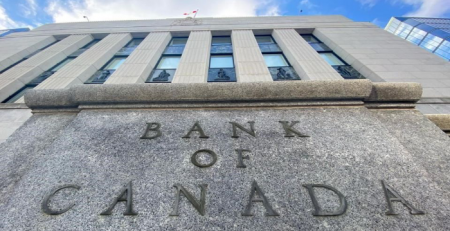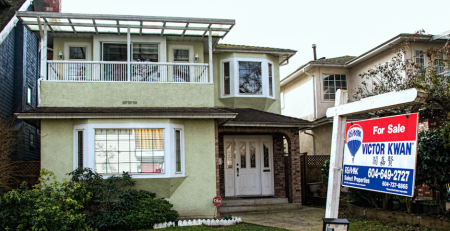How will COVID-19 impact the real estate market in Canada?
[Money Sense – March 25, 2020]
From cooling down sales to changing how available homes are shown, this global pandemic will change Canadian real estate in the short- and long-term.
To say the events of the past few months have had an unprecedented impact on how our society functions would be an understatement. As the threat of the COVID-19 global pandemic grows across Canada and all levels of government enact policies to stop community spread via social isolation, millions of Canadians in the non-essential workforce are now working from home and abstaining from visiting businesses and other public places.
These efforts to “flatten the curve” are paramount to keeping high-risk citizens safe and preventing our health care system from being overwhelmed. But they’re also having a profound impact on industries that rely on in-person interactions, like restaurants and hair salons. They’ve also led to fears of a global recession and limited purchasing power for consumers when the risk of the coronavirus subsides.
The real estate industry, in particular, is a prime example of one that will need to drastically adapt if it’s to be “business as usual.” While brokerages and real estate agents have been deemed “essential services” by the Ontario government, there have been some key changes to the way agents must operate—and it remains unclear how the market will perform as the pandemic evolves.
What can buyers and sellers expect from the market during these uncertain times? Let’s take a look at what could occur in the short- and long-term.
In the short term
A cooler spring than expected
Before COVID-19 was declared a pandemic by the World Health Organization on March 11, the spring real estate market was set for a record-breaking sales season, especially in Canada’s largest cities. The Canadian Real Estate Association revealed the month of February was particularly hot for year-over-year sales, which rose 27% nationwide, indicating the busy spring buying season had started early. Similar performance was recorded for Toronto and Vancouver homes for sale; transactions rose 45.6% and 44.9% year over year in those cities, respectively. As well, a lack of new properties on the market was a prevalent theme in major urban centres, putting the squeeze on buyers, and leading to tight sellers’ market conditions.
Despite this strong start, however, we can now expect to see market activity slow down, as buyers and sellers may reach a stalemate. Buyers may decide to hold off on their home purchase amid uncertain health and economic conditions, while sellers—having seen what others got for their properties in the late winter months—may be hesitant to accept a lower offer today.
However, there are still those who need to buy and sell right now, such as those who have already sold their homes and are on a time crunch to buy a new one. These “highly motivated” buyers and sellers include people who need to relocate for work, are going through a divorce, or need to downsize or upsize quickly.
As well, buyers may be hesitant to take the plunge on a home purchase at a time when employment and income circumstances could change rapidly; they may be wary of lost savings in the face of the financial market downturn, or fear becoming unemployed in the near term, which would jeopardize their ability to secure mortgage financing for their home.
Overall, those who don’t have urgent real estate needs will most likely stay on the sidelines for now, as the situation evolves.
Agents need to find creative alternatives to face-to-face service
In the age of social distancing, one of the most obvious challenges for real estate agents is showing homes listed for sale to prospective buyers, as everyone is wary of the public health risks showings pose, and wants to minimize in-person contact.
That’s led to brokerages, including Zoocasa, enforcing new company rules and guidelines that prioritize virtual interactions, leveraging tech to provide a high level of service to clients, without the in-person impact. Because our operations are digitally enabled, our head office employees are working remotely, and our brokerage operations are paperless; we’ve also enacted new, stricter standards for in-person interactions.
Most real estate bodies are also calling for a cease in open houses and showings; for instance, the Real Estate Council of Ontario has released a strong recommendation for agents to hold virtual showings instead, and cancel all planned in-person events. The Toronto Regional Real Estate Board has also suppressed open houses on Stratus MLS and their public-facing site for all GTA and Toronto real estate listings, and will not be enforcing the requirement to show a home while current government health advisories remain in effect. (Prior to the COVID-19 pandemic, listings that were not available for showings or inspections could be suspended.)
In the long term
The market will bounce back
It’s hard to predict how long COVID-19 will continue to be a threat, along with its impacts on individuals, businesses and the market.
For example, while the circumstances are wildly different, the last time the Ontario real estate market witnessed a buyer-seller stalemate was in the spring of 2017, when the former provincial government introduced the Fair Housing Plan, a package of measures that included a foreign buyers’ tax for the Greater Toronto Area, and new rent controls. While the measures themselves didn’t hinder buyers’ financial capacity, they caused a “psychological” cooldown in the market, as no one wanted to participate in a real estate transaction amid uncertain times. The effects of that cooldown lasted into the second half of 2019, before home sales and prices started showing notable year-over-year increases once again.
However, the reality is that the fundamentals of the market, particularly in the GTA and other major urban centres, don’t change; pent-up buyer demand has been slowing building as the supply of available homes for sale remains scant. Due to the limited inventory available, combined with the population growth in Ontario’s big cities like Toronto, we can expect market activity to resume and recover quickly once we’ve mitigated the health risks from COVID-19 and the financial markets stabilize.
That being said, as people react and adapt to ongoing directives from municipal, provincial and federal governments, we can expect real estate sales to be impacted.











